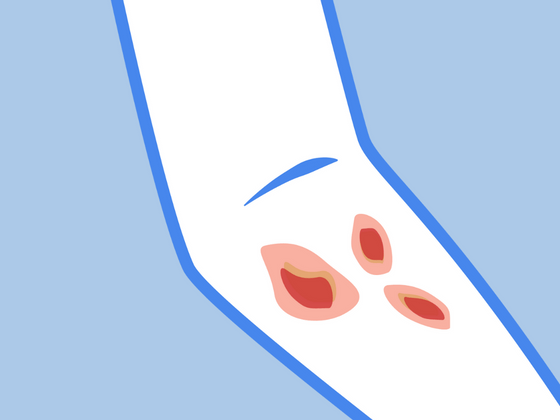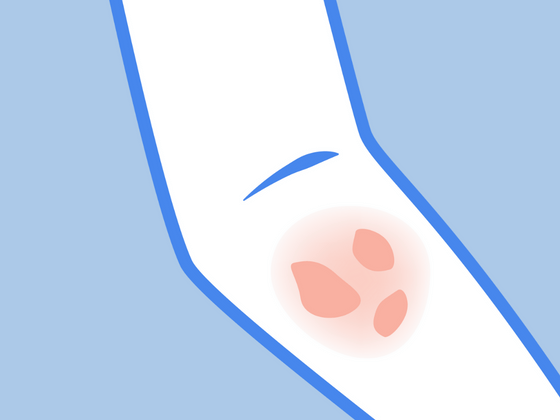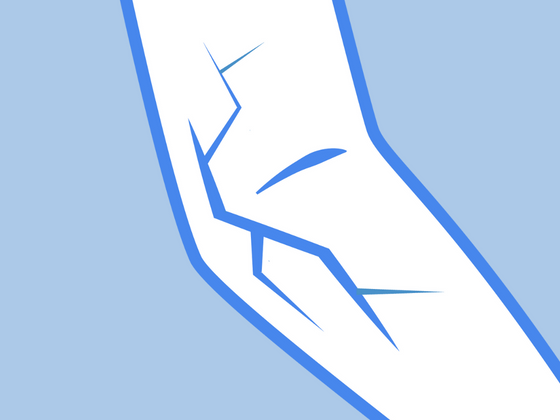Eczema causes a person’s skin to be dry, red, and itchy. Tthere are actually several different types of eczema including atopic eczema, contact dermatitis, and discoid eczema. Another kind of eczema that occurs as a result of very dry skin is called xerotic eczema. In this post, we’ll discuss the causes and symptoms of xerotic dermatitis, as well as provide some natural treatment methods.
Please keep in mind that although what we discuss in this post can relieve eczema, we are in no way medical professionals. If you’re experiencing severe eczema symptoms like an infection, it is best to seek medical advice immediately.
Understanding Xerotic Eczema
Also known as asteatotic eczema, this condition is characterized by excessively dry skin. It generally affects those over 60 years old which might partly be due to a person’s skin becomes drier with age. Although it typically develops on the lower legs - particularly on the shins - it can appear on other parts of the body as well.
What Causes Xerotic Eczema?
Skin requires a water content of 10 to 15 percent to maintain normal function. Water loss in the stratum corneum and a deficiency in natural moisturizing factors causes the skin to dry out. This is what can lead to extremely dry skin. The breakdown of the skin barrier is linked to genetic and environmental factors. The exact cause of the condition is unknown, but common triggers include:
- Dry, cold weather
- Low humidity (Desert, high altitude, use of dehumidifier)
- Hot baths
- Soaps, detergents, and beauty products
- Excessive cleaning or scrubbing of the skin
- Rough towel drying instead of pat drying
Symptoms
As mentioned, xerotic dermatitis typically affects the lower legs. Its main characteristic is cracked or dry skin that may be accompanied by pink or red grooves. In addition, a person who suffers from xerotic eczema may experience scaling, itchiness, or soreness.
Treating Xerotic Dermatitis Naturally
To combat the drying effects of this condition, keeping the skin hydrated is key. Here are some of our favorite natural creams and balms to replenish your skin’s natural moisture, as well as some tools to prevent scratching:
Organic Calendula Salve
If you suffer from dry, cracked or sensitive skin, you’ll love this Organic Calendula Salve. Full of vitamins, antioxidants, essential fatty acids, plant compounds and natural enzymes, it provides a much-needed boost of moisture to dry skin.
Emily Soothers Super Dry Soother
Formulated with scaly, dry eczema in mind, this treatment contains natural oils infused with Chinese herbs to help heal rough, cracked and chapped skin. Hydrate even the driest of skin with this Super Dry formula.
Eczema Gloves for Adults
As dry skin can cause intense itchiness, we recommend wearing these bamboo eczema gloves to protect your skin from scratching. Offering a tailored fit, the soothing fabric makes them comfortable to wear for hours at a time. We highly recommend wearing them during the night when you have less control over your actions and may be scratching unknowingly.
Remedywear™ (TENCEL + Zinc) Bandages
We recommend wet wrapping and dry wrapping with these soothing eczema sleeves. Made from eco-friendly TENCEL embedded with zinc oxide, known for its anti-inflammatory properties, these sleeves help fight the urge to itch dry skin. Treat the elbows, knees, arms, and legs by wrapping the sleeves around the affected area. Don’t forget to pair with your favorite moisturizer for optimal results! This effective at-home treatment is sure to help heal your dry, itchy skin in no time at all!
References:
https://dermnetnz.org/topics/asteatotic-eczema/
https://www.podiatrytoday.com/keys-diagnosing-and-treating-xerotic-skin-conditions
https://www.medicalnewstoday.com/articles/322435
------------------

Bio: Laura is a contributor and content developer for The Eczema Company. She is in no way a medical professional. Her comments, suggestions, and reflections are not intended to replace any medical advice. Always seek the help of a medical professional before undertaking any diet or lifestyle changes








